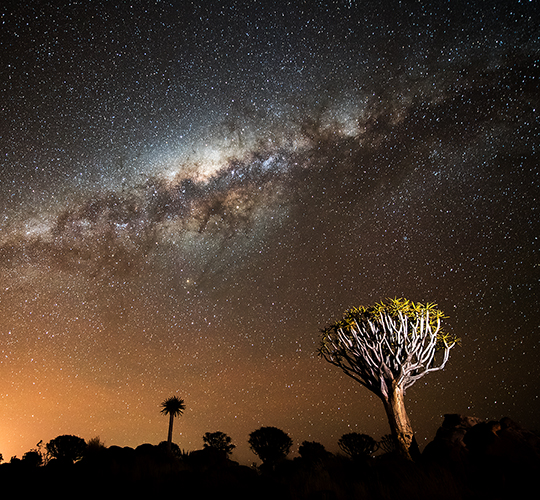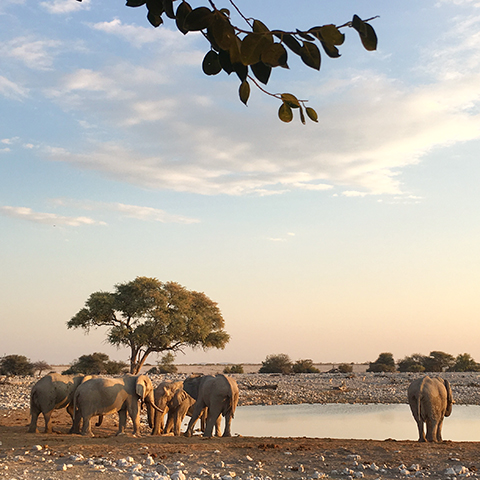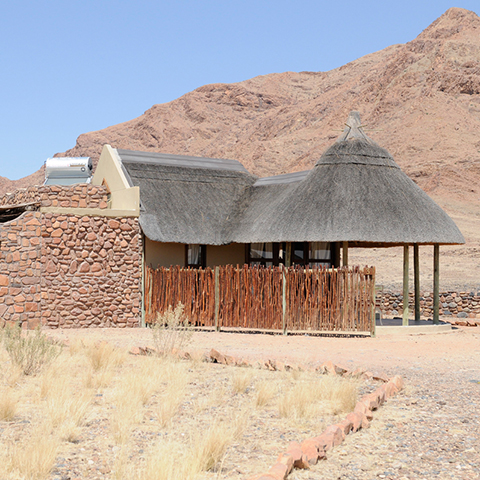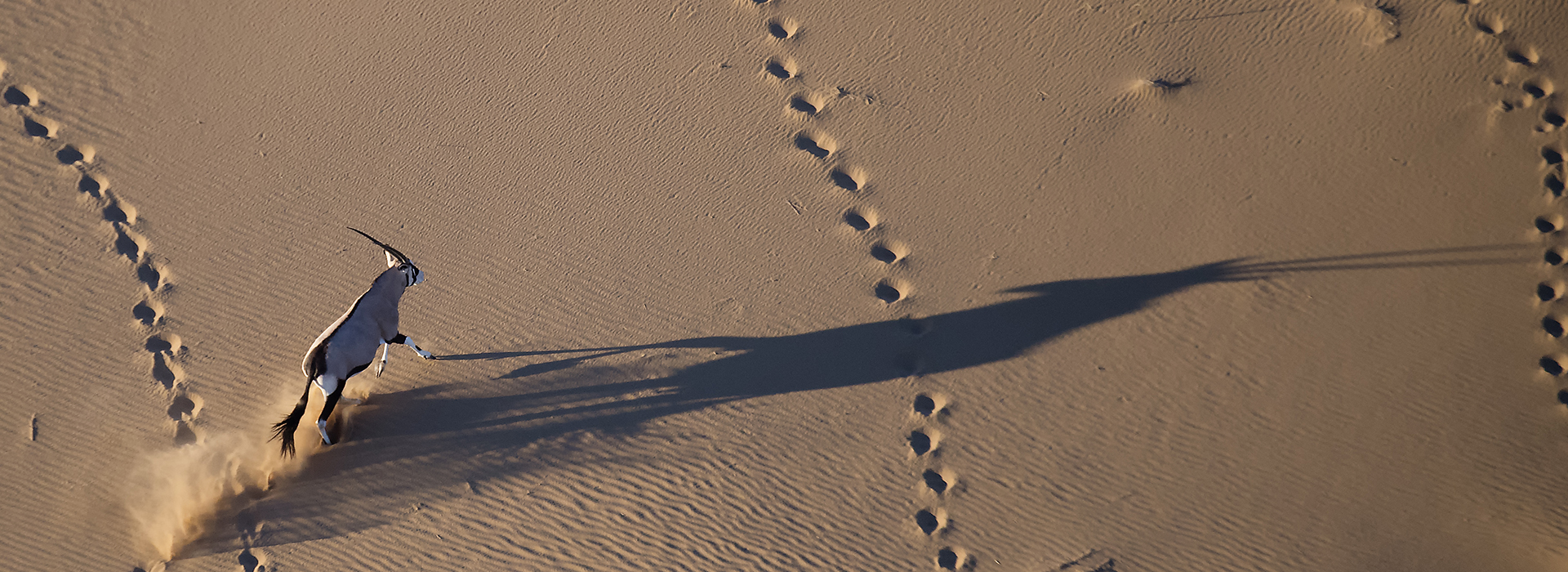
Namibia
The country of spectacular landscapes
Discover Namibia with a tailor-made tour provided by Van Bommel Safaris, customized to your preferences.
Namibia, a stunning vast and sparsely populated country, offers a diverse mix of ocean, desert, dune landscapes, and rivers.
The renowned Etosha National Park is known as the most prominent wildlife park in Namibia. In the dry, dusty environment with limited vegetation, animals gather at waterholes during the dry months, providing excellent opportunities for spotting wildlife.
However, Namibia is much more than just a wildlife safari destination: impressive are the sand dunes of Sossusvlei on the edge of the Namib Desert.
Special safari areas in Namibia
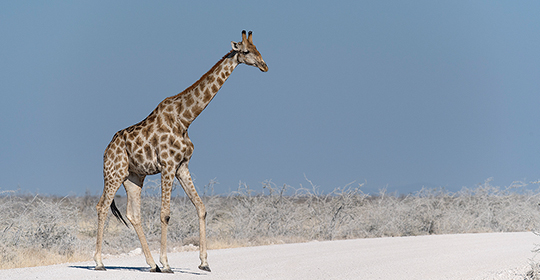
Etosha National Park
Etosha National Park is a must-visit during your tour in Namibia. The park features an immense salt pan that is usually dry, but during rain, it briefly fills with water. This attracts flamingos and pelicans. Waterholes, both natural and artificial, help wildlife survive during dry periods and provide excellent spots for animal sightings.
Namib Naukluft National Park – Sossusvlei
Deadvlei is a clay pan in the Namib Desert. Between the twelfth and fifteenth centuries, large camelthorn trees grew in this area. Climate change and sand dunes cut off the water supply, causing the trees to die. Now, you can see their skeletons as silhouettes in the clay layer. Although not petrified, the trees do not decay because it is too dry.
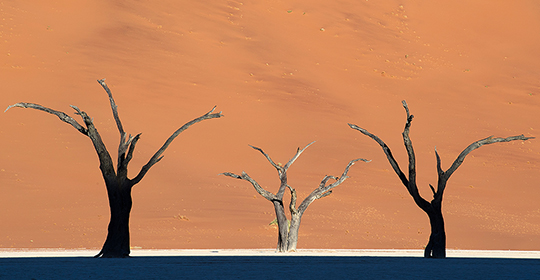
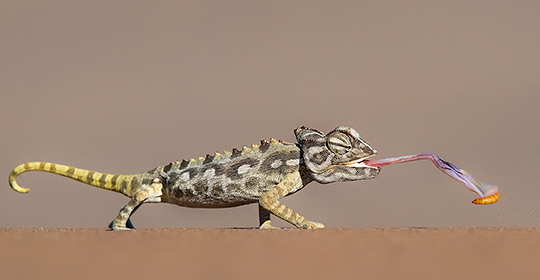
Swakopmund
To the north of Swakopmund lies Cape Cross, a reserve for an enormous colony of Cape fur seals. Further north is the inhospitable Skeleton Coast, where the ruggedness is precisely what forms its allure.
Kunene – The Himba
The Himbas, a nomadic ethnic group in northwestern Namibia, traditionally sustain their livelihood through herding mainly cattle and goats. During your tailor-made tour, we offer the opportunity to visit a traditional Himba family near Epupa. We have established respectful arrangements with a Himba guide to prevent disruption to their delicate culture. Through daily rotations, a different family is visited each day, ensuring minimal impact. As a token of appreciation, the families receive maize meal and other food items. Unfortunately, in some areas, there is an observed increase in begging (for sweets), which we aim to avoid.
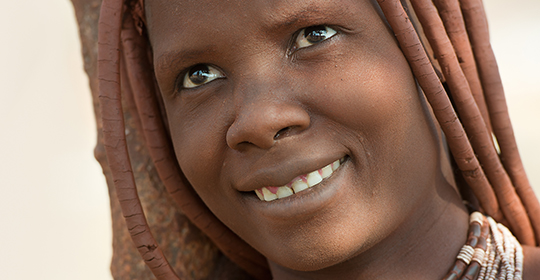
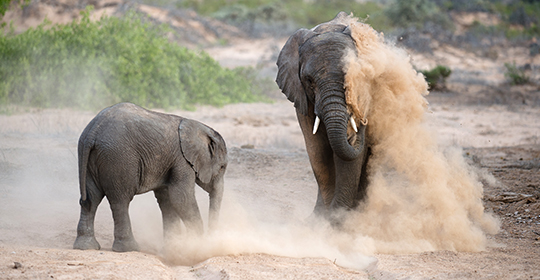
Damaraland – Desert elephants
Damaraland, situated in the north-central part of Namibia, is a stunning yet remote area characterized by diverse landscapes, including open plains, mountains, and canyons. In the southwest, it borders the Namib Desert, where small groups of desert elephants reside. With a specialized safari, there is a high chance of encountering these elephants, and you also have the opportunity to embark on a guided walking expedition to search for black rhinos that have adapted to the arid climate. Truly a unique experience!
Keetmanshoop, Lüderitz and Fish River Canyon
In the south of Namibia, Keetmanshoop is renowned for the Quiver Tree Forest and Giants Playground. Quiver trees are found throughout southern Namibia, but nowhere in the form of a forest like in Keetmanshoop. These photogenic trees were used by Bushmen as quivers for arrows.
Near Lüderitz lies the ghost town of Kolmanskop; the last residents left the village in 1956. Since then, the sand dunes have been encroaching, and all the buildings are now partially buried under the sand.
In the deep south of Namibia is the Fish River Canyon, one of the world’s largest canyons, with a length of 161 km, width of 27 km, and depth of 500 m.
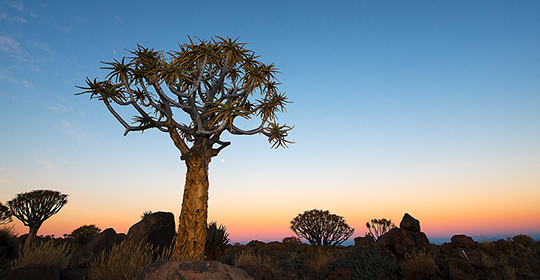
Namibia has got unique safari possibilities
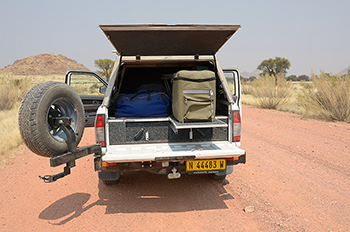
Namibia: fantastic for a self-drive safari
Explore Namibia on a self-drive tour and visit the highlights.
The best way to discover Namibia is through a self-drive tour. The roads are mostly unpaved but well-maintained, allowing you to enjoy breathtaking landscapes along the way.
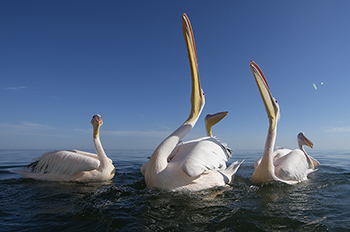
Namibia, desert and ocean
Namibia, after all the dust and sand, take a moment to relax by the coast
Enjoy a refreshing walk on the beach, take a boat trip surrounded by pelicans, sea lions, and dolphins, or even embark on a canoeing adventure. There are plenty of ways to get the sand out of your hair.
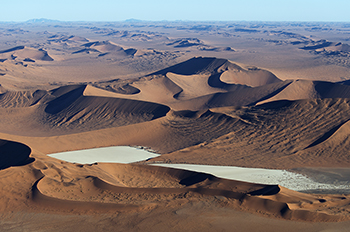
Namibia from the air: spectacular
From a helicopter, hot air balloon, or small plane: an endless landscape.
Glide peacefully in a hot air balloon over Sossusvlei or prefer capturing stunning photographs from a doorless helicopter? If time is limited, and you favor a luxurious fly-in safari journey, one thing is certain: Namibia from the air is truly spectacular!
Landscape and wildlife photography at its best and so much more…….
Photography in Namibia is fantastic: breathtaking landscapes, an impressive night sky, abundant wildlife, and a variety of birds. Expect the best opportunities for both day and night photography.
What is the best time for a safari trip to Namibia?
From June to October are ideal months for a safari trip in Namibia. Animals in Etosha are best observed at the waterholes. Enjoyable daytime temperatures and cooler nights. If you’re camping, it can be a bit cold in a tent around July and August, as frost is possible at night. In October, temperatures begin to rise, and during the summer months (winter in the Netherlands), it’s almost daily 40 degrees Celsius and warmer. Namibia doesn’t have a true rainy season, but from January to April, there can be substantial storms.
The opinions of some of our clients
Our Himba experience was so impressive. The women are beautiful and full of pride. It was not an act, but real life. It was an honour to be there.
Our photography trip through Namibia was so amazing. We’ve learned so much! At times it was hard work, but it paid off in the end. Namibia has a special place in my heart now.



